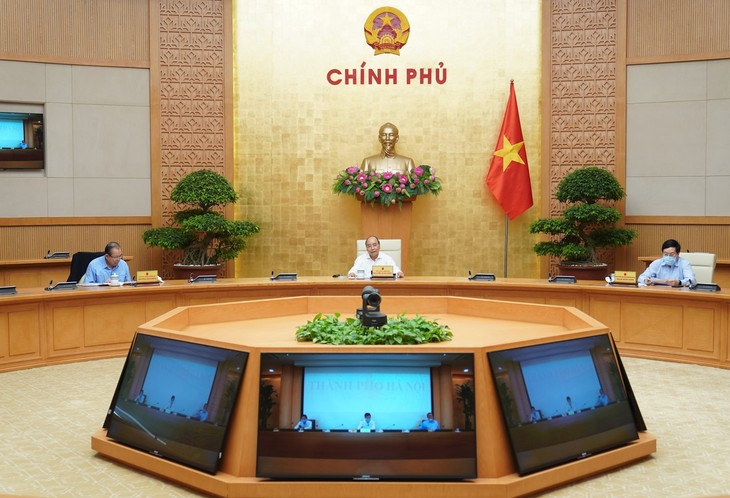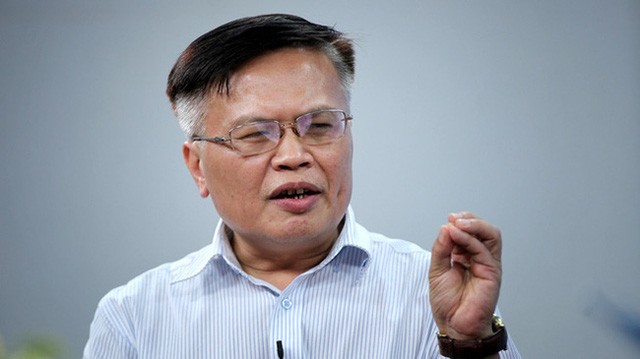(VOVWORLD) - Vietnam’s GDP grew 2.12% in the first nine months of this year, the lowest growth rate of the past decade, the General Statistics Office announced in a recent report. But due to the COVID-19 pandemic’s impact on economies around the world, the S&P Global Ratings found Vietnam’s recovery to be the second strongest in Asia-Pacific.
 Prime Minister Nguyen Xuan Phuc at the government meeting on April 22, 2020. (Photo: VGP/Quang Hieu) Prime Minister Nguyen Xuan Phuc at the government meeting on April 22, 2020. (Photo: VGP/Quang Hieu) |
Rapid control of the coronavirus epidemic was the biggest factor allowing Vietnam to ease social distancing restrictions and resume development.
At a government meeting on April 22, Prime Minister Nguyen Xuan Phuc said the pandemic remains a big problem in many countries and a proven vaccine is yet to arrive.
In this context, Vietnam has come up with many ways to boost the economy - restructuring, fully tapping the domestic market, seeking new external markets, and diversifying exports.
Minister of Industry and Trade Tran Tuan Anh said, “Businesses and consumers are the two important factors in restoring the economy. They both need maximum support from the State and relevant agencies. Businesses are facing weak sales, so we must help them expand the market.”
Promoting public investment disbursement is another key part of the government's policy. The Prime Minister has issued a directive on ways to facilitate production and trade and ensure social security despite the COVID-19 epidemic.
Other key measures are developing essential infrastructure and boosting private and foreign investment.
Economists say that this year’s GDP growth will largely depend on public investment. Over the past nine months, Vietnam disbursed more than half of its planned disbursement.

Nguyen Dinh Cung, a member of the Prime Minister’s Economic Advisory Group (Photo: cafef.vn)
|
Nguyen Dinh Cung, a member of the Prime Minister’s Economic Advisory Group, said public investment is important for regulating macro-economic norms and reducing economic and social inequality.
“Whenever a locality receives public investment, the disbursement should be done quickly and on schedule, because the capital will greatly benefit the economy, that locality, and that industry,” said Cung.
Another key is increased exports by small and medium-sized enterprises. Although the coronavirus pandemic has decimated material supply and consumer demand, Vietnam’s exports are still growing. Total import and export turnover has reached 389 billion USD, thanks to exports of rice, coffee, and shoes to the EU and preferential tariffs and prices from the EU-Vietnam Free Trade Agreement, which took effect in August.
Pham Tat Thang, a senior trade specialist, said, “The EU is a demanding market with strict requirements for many products. We can export our rice to that market tariff-free. Other strong export products are passion fruit and coffee. During the COVID-19 pandemic, Vietnam has exported a growing volume of goods to the EU.”
The Vietnamese government has implemented a financial support package worth 2.6 billion USD for poor people and businesses affected by the epidemic. All Vietnamese policies are aimed at achieving a GDP growth of at least 2% this year.